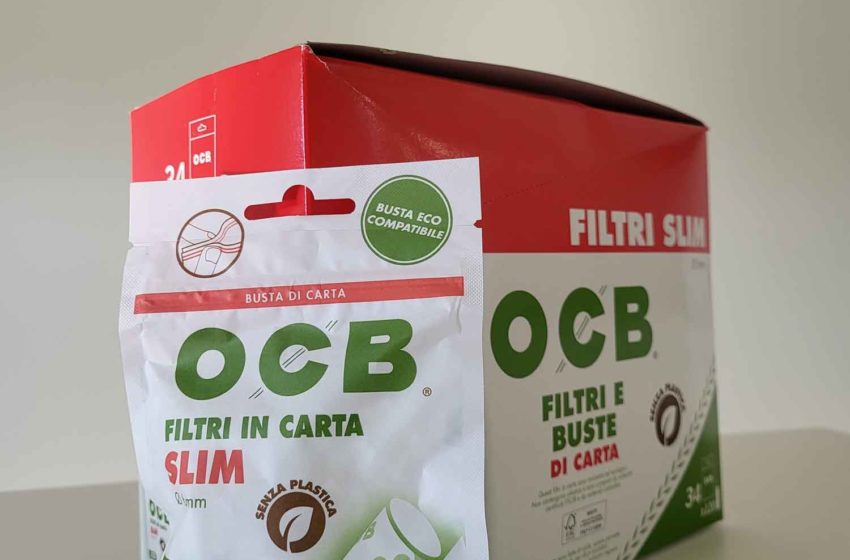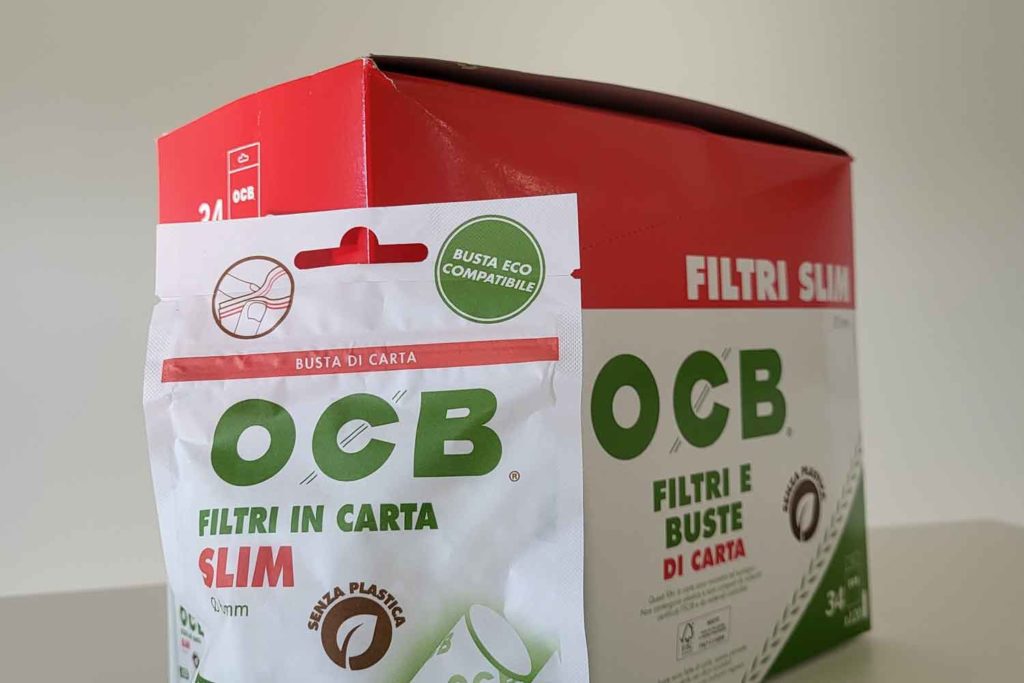All in the Paper
- Also in TR Paper Print Edition RYO/MYO
- August 1, 2022
- 0
- 10 minutes read


Republic Technologies strengthens its lead in the world of RYO and MYO.
By Stefanie Rossel
While a niche compared to the global combustible cigarette market, the roll-your-own products category continues to grow steadily. Trouve360 Reports valued the global RYO products market at $8.72 billion in 2021 and projects it to reach $10.67 billion by 2028, reflecting a compound annual growth rate of 2.9 percent. The Covid-19 pandemic has boosted the sector, according to Santiago Sanchez, executive president of Republic Technologies International (RTI), a leading supplier of smoking accessories probably best known for its JOB, Zig-Zag and OCB rolling paper brands. “Sales increased a lot in 2020–2021 due to the stocking situation and increasing demand,” he says. “Some retailers overstocked. Now we have a kind of stabilization, which started early this year for our company. Sales have stabilized at a higher level than before Covid.”
The RYO category also benefits from its unique position in the tobacco industry. “If you look at the U.K., for example, where vaping has become very popular, you will notice that the RYO market has not been shrinking because of people switching to vape products,” says Sanchez. “Whilst we have lost some customers to vaping, we have won new customers who have downtraded from highly taxed factory-made cigarettes.”
Due to continuing tax increases for cigarettes, Sanchez expects more smokers to switch to more affordable RYO and make-your-own products. Production planning, however, has become more difficult for his company: “Currently, the situation is very dynamic due to inflation and the energy crisis following the Russian war against Ukraine and due to stockpiling; you don’t know what will happen tomorrow,” says Sanchez.
RTI boasts the largest paper booklet factory in the world. It is located at the company’s headquarters in Perpignan in the south of France and has an output of 1.2 billion booklets annually.
The company is also present in Barcelona, Spain, where it moved to a new, larger site last year. Here, RTI manufactures filter tubes for Spain, Portugal, France and Italy. With its two tube maker machines, the factory has a capacity of 4 billion tubes a year. With five filter maker machines, the plant also supplies 15 billion filters as a base for the tubes as well as for sale as bagged filters.
With Austria-based Altesse, RTI has a third production facility in Europe that manufactures tubes and filters for Central Europe; Germany is the main market for tubes in Europe. Top Tubes in Montreal, Canada, supplies the North American market with filter tubes. A plant in North Carolina produces RYO and MYO products as well as pipe tobaccos for the United States, where the RTI operates under the name Republic Brands. Furthermore, five distribution companies in the U.S., Canada, France, the U.K. and Germany are affiliated with RTI.
Controlled Process

The company sells to 110 countries worldwide and is vertically integrated. Most of the paper it processes is produced by its sister company Papeteries du Leman, which is associated with the privately held Republic Technologies Group. “From cigarette paper to the final product, everything comes from one company,” Sanchez emphasizes. “We also have close ties with the people growing the plants for the raw materials of our products, for example the farmers in Champagne who grow hemp for our hemp papers.”
RTI has total control of the process, according to Sanchez. To help reduce greenhouse gases, the company tries to source its materials locally as much as possible. “Except for the Arabic gum that is imported from Africa and the bamboo that we source from China, all raw materials and machinery come from within 500 km of our Perpignan site,” says Sanchez.
Operating in a comparatively small segment of the tobacco industry, RTI does not have available as vast of an array of ready-made manufacturing equipment as the large cigarette companies do. Instead, the smoking accessories supplier has an R&D department with a team of engineers and technicians who design all machinery, which is then custom built. Maximized automation and flexibility are key requirements of the equipment as RTI produces many different paper specifications based not only on cellulose but also on textile fibers such as hemp, flax, bamboo and rice. Traceability is another consideration. Each bobbin is marked with a matrix code so that the paper can be traced back to the machine and even the canal on which it was manufactured. As one measure to protect its products from being counterfeited, RTI embosses its papers with watermarks.
Counterfeiting is a big issue in the RYO category, according to Sanchez, who observes this threat especially for RTI’s OCB brand, with fakes coming mostly from China. The company says it relentlessly pursues counterfeiters. In March this year, it won a significant legal victory in the U.S. when a jury found that a Georgia-based wholesaler had willfully sold and distributed counterfeit rolling paper products under Republic Brands’ TOP and JOB trademarks. Republic Brands and its affiliates were awarded $11 million in damages from the counterfeiting wholesaler and its owner.
R&D is Key
At its headquarters, RTI has a dedicated laboratory that checks the ingredients and raw materials of the company’s products for regulatory compliance. It also analyzes competitors’ products and fake versions of its own trademarks. The lab is equipped to measure all paper characteristics, such as opacity, tensile strength, porosity or thickness.
R&D is a must for RTI because of legislation, the move toward more environmentally friendly production and other factors, says Sanchez. “Regulation makes work highly complicated. Being delivered to 110 markets, our products have to comply with all the different regulations, health warnings and even plain packaging requirements, as is the case in Israel,” he says.
RTI’s lab also provides vaping machines and related testing equipment. The company diversified into the vape category in 2014 and has since been selling e-liquids under the E-CG brand. In October 2020, the company acquired French liquid manufacturer Innovative – So Good to expand the scope of its business. Today, RTI is one of the leaders in the French vape market, where its liquids are exclusively sold through tobacconists. All liquids are created at the Perpignan site.
One of the advantages of rolling papers is that they can be made with naturally occurring fibers and without calcium carbonate and citrate as combustion additives, as is the case with factory-made cigarettes.
In June 2019, the EU Single-Use Plastics Directive entered into force. Since then, all tobacco products with filters and filters marketed for use in combination with tobacco products in the common market must carry a label that states that the products contain plastic.
Presently, the RTI’s R&D team develops many products that are more environmentally friendly. RTI has launched a line of biodegradable filters that are made with paper. Touch and filter properties are virtually the same as those of cellulose acetate (CA) filters, explains Sanchez. “It’s the result of a two-year development,” he says. “Technically, it replicates CA. Tests have shown that smoking experience is the same, and from a physical point of view, pressure drop equals that in a CA filter. We are the only ones offering this kind of biodegradable filter for RYO. The paper is the key; it is made from cellulose and viscose. Only few paper manufacturers are capable of producing this.”
RTI also markets its biodegradable filters in some of its tube products. Environmentally friendly filters today account for 20 percent of the company’s turnover from filters.
New Base Materials
Regarding rolling papers, the company has a wide range of products in its portfolio. RTI claims to be the only company selling cigarette papers that contain real rice fibers. “Rice fibers are quite fragile; they tend to break too often on high-speed machines,” says Sanchez. “So many manufacturers stopped making it. We developed a rice paper in 2021 with a mixed blend consisting of 50 percent rice and 50 percent hemp and adopted our manufacturing process to handle the product.” Rice paper is one of the original cigarette paper types; it burns more evenly and reportedly gives more of a natural taste, so many consumers still want it. The rice that RTI processes in its paper comes from the French Camargue region.
In 2021, RTI also introduced Roor rolling papers with CBD-infused gum, which are distributed in markets where CBD is legal, such as the U.K. and Germany. “Due to Covid, the product has been launched only recently, but it’s doing particularly well in Germany. We also offer variants with rice, organic hemp and unbleached papers,” says Sanchez.
OCB Bamboo is another newcomer from RTI. “We have developed a full range of bamboo papers, which we are now planning to sell worldwide,” Sanchez says. “OCB Bamboo has been a big success in the U.S. Bamboo is good for the environment; it grows fast and needs no fertilizers. We are trying to find an alternative source to China, for instance, in the Philippines.”

